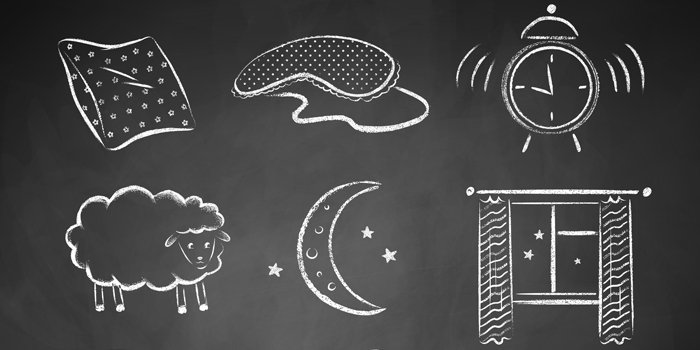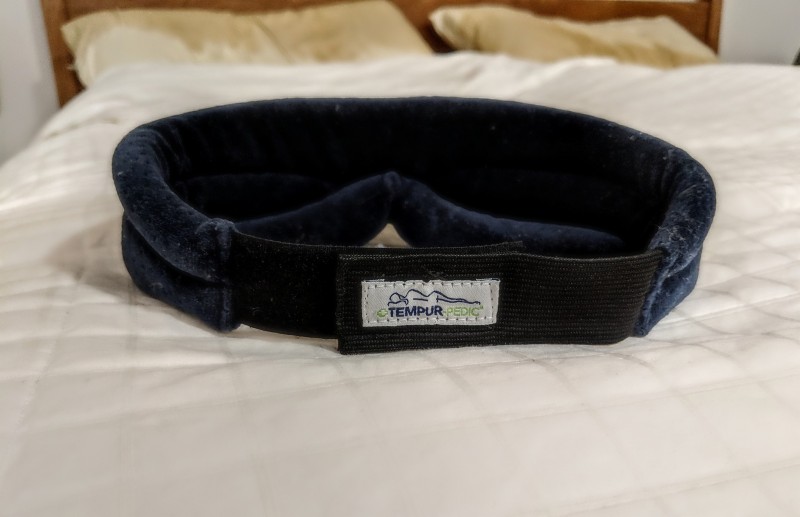
"Early to bed, early to rise, makes a man healthy, wealthy, and wise" — Benjamin Franklin.
This widely-known saying resonates with me. Maybe it’s the mysterious, hardwired discipline in me that caused Franklin’s words to spring to life while pursuing bodybuilding and life goals over the past two decades. Regardless of your sleep schedule, the amount, quality, and timing each play a major role in your recovery capacity and general health.
Why Does Sleep Matter?
Aside from the fact you’ll die more quickly from a lack of sleep than food, research suggests averaging seven to eight hours per night leads to favorable body composition, fewer accidents, improved cognition, and less chronic disease.
RECENT: Why I Don’t Drink Alcohol
I mention the seven-to-eight-hour average because a correlation exists between metabolic syndrome (a series of conditions associated with increased risk of heart disease, stroke, and diabetes) and those experiencing disrupted, shortened (five to six hours) and lengthened (eight to nine hours) of sleep. Yes, you can actually get too much sleep. The onset of insulin resistance can occur in otherwise healthy individuals in a single week of losing two hours of sleep per night and in a single day of losing four hours. Both the amount and timing matter.
Circadian Rhythm
While early sleepers and risers may not experience any more wealth than night owls who sleep until noon, the timing consistency in which a person sleeps is important from a health perspective. The circadian rhythm—also known as sleep-wake-cycle and often referred to as the "body clock"—regulates fundamental biological functions including hormone release, digestion, temperature regulation, and several others. In fact, American scientists Hall, Rosbash, and Young recently received the 2017 Nobel Prize in Physiology for discoveries relating to the molecular mechanisms controlling the circadian rhythm.
Maintaining Rhythm
Going to bed at approximately the same time each night aids the circadian rhythm. I personally experience better sleep when I consistently get to bed at the same time, typically resulting in waking just before my alarm goes off (set at eight hours) and feeling rested. Living in a household of three teenage girls means my sleep is regularly interrupted when they get home on weekends or loudly rummage for food in the kitchen at night. Grey noise is a worthy adjunct. I sometimes sleep with Bose noise-canceling headphones or a fan running to block out noise disturbances. This is why sleep apnea, when breathing stops multiple times at night, is so dangerous, due to the continuously disruptive nature of a person’s sleep.

The Role of Light
Bright, full-spectrum light first thing in the morning and around noon can help set your circadian rhythm. Avoidance of artificial blue light in the evening also aids the expediency in which a person falls asleep. The age of technology (cell phones, laptops, television) and the replacement of incandescent (full spectrum) with LED (blue dominant) lighting plays a role in sleep disorders. Hence the reason to avoid artificial light emitted by cell phone, tablet, or laptop use in the bedroom before sleeping.
My family laughs at me, but I started wearing a sleep mask several years ago after reading an article by Charles Poliquin on the athletic benefits of ensuring darkness while sleeping. I wear a highly comfortable mask made by Tempur-Pedic because it blocks out 100% of the light in the room. Our biological clock is centered deep within the brain, in a cluster of nerve cells, essentially staying synced with the outside world via light communicated through our retina.
Personal Suggestions
The following list includes some personal suggestions and things to avoid to achieve a better night’s sleep. Keep in mind, I’m not a medical doctor and offer the following based on personal experience only.
Aids
- Supplement with ZMA and melatonin before bed. Both are non-addictive and the most helpful in the long list of natural remedies with which I’ve experimented.
- Sex releases endorphins, oxytocin, and otherwise relaxes and makes us feel good. It also blunts cortisol, the stress hormone, which in a proper sleep cycle peaks upon waking, not at night.
- Ensure a dark and quiet room. A sleep mask and adding grey noise, mentioned previously, helps in this regard.
- Evidence supports that regular exercise reduces stress and symptoms of depression. Low anxiety levels decrease the time it takes to fall asleep and the ability to stay asleep. Between running a business and raising teenagers, I would personally lose my freaking mind if not for the ability to train!
Impediments
- Refrain from caffeine within four hours of bed. This is kind of a no-brainer, but some people train at night and can’t elevate their intensity without a pre-workout stimulant. Good luck falling asleep.
- Stay off electronic devices just before going to bed. If you like to read, consider the old-fashioned way by purchasing an actual book. Artificial blue light exposure impacts sleep quality.
- While alcohol can assist falling asleep quicker, it prevents a person from reaching the deeper stages of the sleep cycle. Contrary to popular belief, alcohol is best avoided.
- Heavy meals place too much strain on digestion and can interfere with sleep. If dieting to compete, my go-to snack is a handful of almonds. High in tryptophan, fiber, and fat, they help curb waking with hunger pangs.
Conclusion
Work out, have sex, take some ZMA and melatonin, don a sleep mask, and find a quiet place to sleep. Repeating the process daily like clockwork will hopefully find you waking refreshed, healthier, and performing better at work and in the gym. Happy zzz's!
Header Image Credit: sonyaillustration © 123RF.com











and Stasha Gominak about vitamins) but haven't had extra funds to self experiment . I did recently upgrade ~12 year old mattress to tempurpedic and started using $20 mask at the same time which has been amazing...Can't find pillows I really like though!